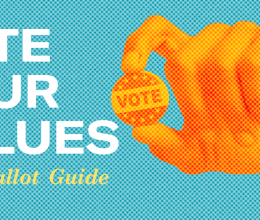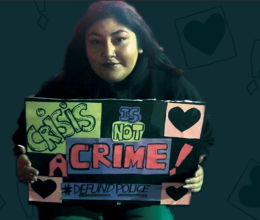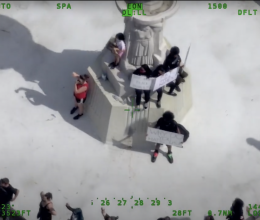
SAN BERNARDINO - The ACLU Foundation of Southern California (ACLU SoCal) asked a court today to order the San Bernardino County Sheriff’s Department to hand over documents spelling out its policies and practices for using Tasers in the wake of several deaths following deputies’ shocking people multiple times with the electronic weapons.
In a lawsuit filed in San Bernardino County Superior Court, ACLU SoCal said it had filed a California Public Records Act request for records that could be used to determine what changes the department had made in its policies and training programs on using Tasers and whether those changes have been effective. But the department refused to provide the documents.
“The San Bernardino Sheriff’s Department has refused to publicly disclose records related to the policies and practices surrounding its officers’ use of Tasers,” said Hector Villagra, executive director of ACLU SoCal. “That’s unacceptable given the troubling number of deaths involving individuals who were Tasered multiple times.”
In fact, a County Civil Grand Jury found in 2012 that Taser-related deaths “are not uncommon in San Bernardino County” and that the “vast majority” of deaths occurred when a person was shot more than once.
The grand jury cited three cases where men died after being shot multiple times, including a Lake Arrowhead man who was shot 16 times and a man in custody who was shot twice.
If individuals did not show compliance or that they were incapacitated, the grand jury said, deputies would assume their Tasers were not working properly and shoot them again. The sheriff’s department’s training manual did not require that an officer at the scene keep track of the number of times Tasers had been fired in situations involving several officers, leading to “multiple, repeated and continuous” shots.
The grand jury made specific recommendations about ways to amend the Taser training manual and improve the department’s training program to avoid unnecessary, multiple, continuous exposures, the lawsuit said.
Those recommendations were consistent with guidelines the U.S. Department of Justice in cooperation with the Police Executive Research Forum published in 2011, saying that “repeated or multiple applications” of Tasers “may increase risk of death.”
The sheriff’s department agreed with the grand jury’s findings and agreed to take several steps to improve its policies and practices, the suit said. But the sheriff’s office has refused to disclose records that would enable ACLU SoCal and the public to review the effectiveness of any steps taken to implement the grand jury’s recommendations.
“Only by having access to the records requested by ACLU SoCal can the public properly evaluate whether the sheriff’s department has taken seriously the concerns raised by the grand jury’s final report to curtail the abusive use of Tasers,” said ACLU SoCal Staff Attorney Adrienna Wong.
In August, for instance, an unarmed Victorville man died after he was shot as many as 27 times with Tasers, relatives said. And since the grand jury report was issued, several current and former inmates at the sheriff’s department’s West Valley Detention Center in Rancho Cucamonga said they were routinely and repeatedly shocked with Tasers, with little or no provocation, “sometimes as part of hazing rituals or for the deputies’ entertainment.”
The sheriff’s department said the records it has not released are part of use of force reports and claimed that those reports are exempt from disclosure under the California Public Records Act because they are privileged attorney-client communications and contain attorney work product.
Those claims are legally and factually baseless, the ACLU SoCal lawsuit said. The information being withheld has been disclosed in other records, but the sheriff’s department has failed to identify those records or to search for, identify and produce other records ACLU SoCal has requested relating to revisions to the department’s Taser policies and training manuals and the need for such revisions.
Read the complaint: https://www.aclusocal.org/cases/aclu-v-sbcounty/complaint
Contact:
Sandra Hernandez, 213.977.5252, shernandez@aclusocal.org
Ed Boyer, 213 977.5252, eboyer@aclusocal.org






